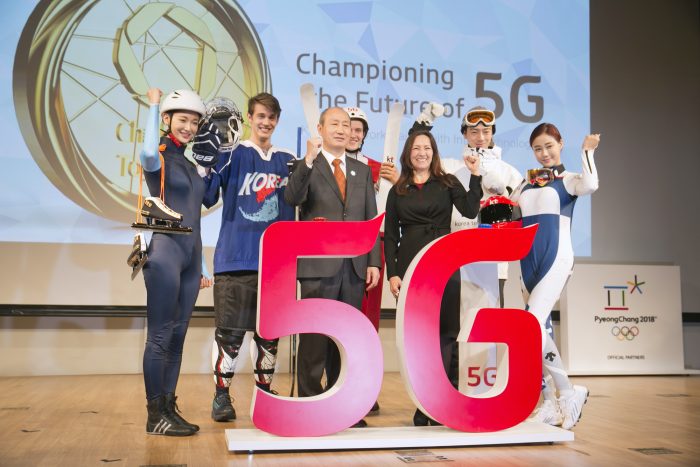
5G is coming, and its next big test is at the Winter Olympics
Let the 5G games begin.
The Winter Olympics underway in Pyeongchang, South Korea, showcases heated competition among the world’s finest athletes. But these Olympics are also a showcase for technology that will eventually touch all our lives: the emerging next generation of wireless commonly known as 5G, an effort backed by muscular tech from the likes of Intel, Samsung and KT (Korea Telecom).
The Olympics should provide an excellent test bed for 5G. It will be cold. There‘ll be many thousands of attendees all seeking to capture, crunch and share data at the same time. And the companies will be able to measure the strength, stability, consistency, and reliability of the network, ahead of commercializing the technology within a couple of years.
Talk of 5G inevitably invites a discussion around super-fast speeds and near-zero latency on your phone, latency being industry jargon for how quickly the network recognizes that you have requested data and in turn delivers such data to your device.
But 5G isn’t merely about a promise to deliver data speeds of 10 to 100 times what 4G LTE connections are capable. It‘s going to take awhile before most of you carry such a speed demon in your pocket, anyway. Rather, most nascent 5G deployments and trials have focused on fixed wireless solutions where data are transmitted from one stationary point to another. Think of it as an alternative to broadband in the home and elsewhere.
The Intel camera pod that captures images for virtual reality immersion. (Photo: Intel handout)
Mass adoption will take time as technical standards are hammered out and the infrastructure completed, but the ultimate expectation is that 5G will affect everything from self-driving cars and the so-called Internet of Things (i.e. Web-connected devices like refrigerators) to virtual reality, remote medicine and smart cities.
“Last year was about trials and understanding the performance of 5G in different conditions. And this year we’re really transitioning towards deployment and why 5G matters to people, consumers and businesses,” says Alok Shah, vice president of networks and business development at Samsung Electronics America.
One way tech companies want to use 5G: to change the way viewers watch sports, whether they‘re inside a stadium or miles away watching in virtual reality.
